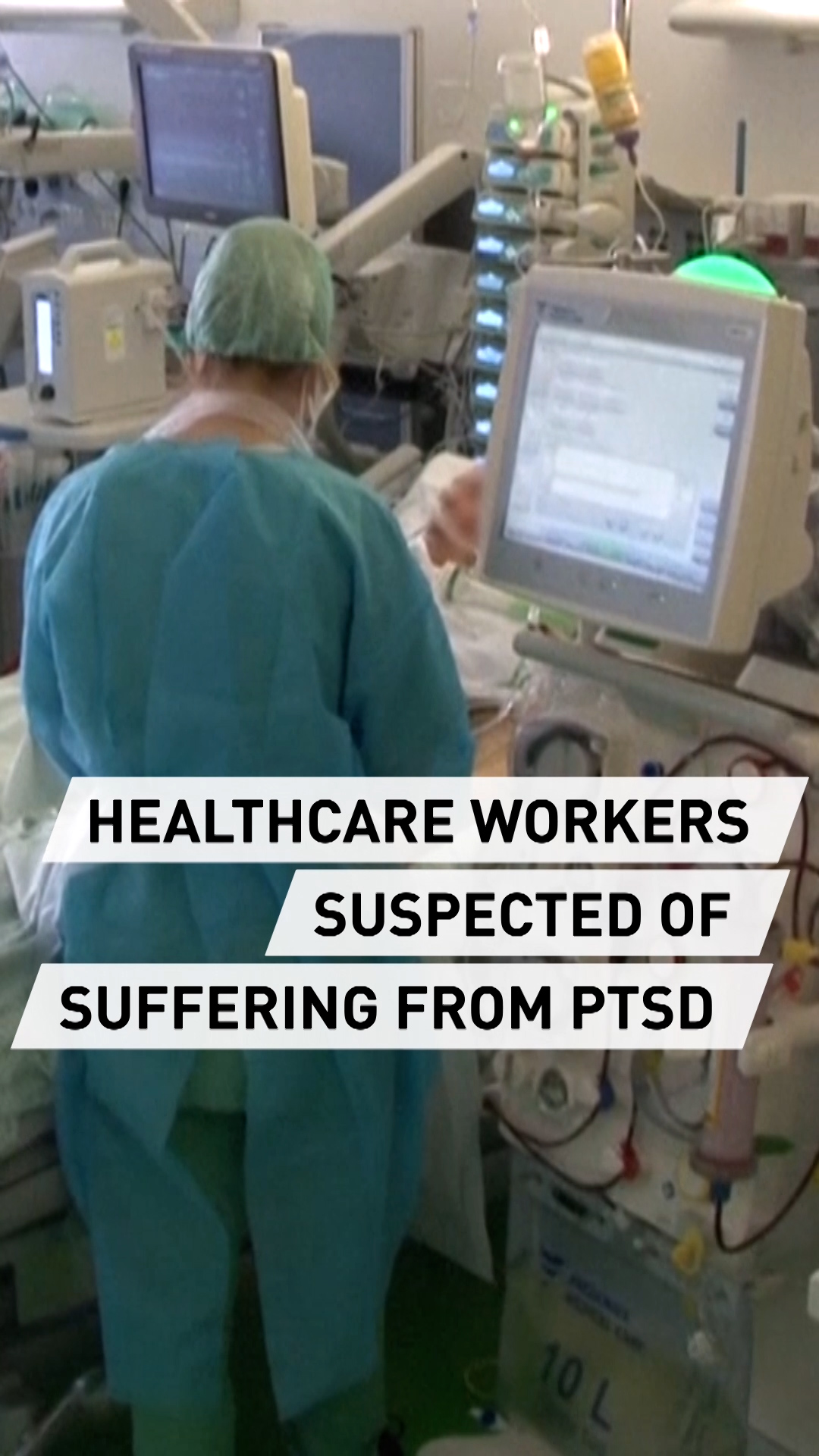02:32

Psychologists are raising concerns that doctors and nurses on the frontlines may be suffering some form of post-traumatic stress disorder from caring for coronavirus patients.
CGTN Europe's RAZOR program spoke to Joff Lacey, a consultant in anaesthesia at St George's hospital in London, who said intensive care staff may be the most affected.
"I think that the real challenge has been for the intensive care staff who have looked after these patients day in, day out," he said. "They know them intimately, and they have worked to the nth degree to try and help these patients," he added.

Doctors in the UK have vented their anger following the deaths of healthcare professionals during the COVID-19 pandemic./AP
Doctors in the UK have vented their anger following the deaths of healthcare professionals during the COVID-19 pandemic./AP
He also believes that the change of environment, not just the caring for patients, has affected the mental wellbeing of doctors and nurses.
"It's not just the patient experience these staff members have gone through, it's the whole rigmarole of the unknown and the restructuring of their normal work environment that, I suppose, has an additive effect," Lacey explained.
'Moral injury'
Another side-effect for healthcare workers is an overwhelming sense of helplessness, sometimes referred to as 'moral injury', for not being able to do more for suffering patients while the world waits for vaccines to be developed.
"There isn't a definitive magic bullet treatment, and it is what we describe as supportive care – so you are essentially trying to support the body as it tries to fight this virus," Lacey said.
"That can sometimes leave people feeling a bit helpless, they're doing everything they can within their capabilities, but actually, when you're just supporting and you can't provide them with a drug as such, it can be very frustrating," he added.

Doctors and nurses have seen their working lives transformed by the pandemic and many have been left with a sense of 'helplessness'./AP
Doctors and nurses have seen their working lives transformed by the pandemic and many have been left with a sense of 'helplessness'./AP
In many countries across Europe, helplessness is also exacerbated by the heavy demand on resources, and a shortage of equipment needed to treat patients safely.
"People have had to use different equipment and in a different environment to what they're used to," Lacey explained.
"The nature of the disease means that lots of people have that frustration and fatigue in terms of trying to help these patients," he said.
"It's not specific to coronavirus – there are many conditions where that happens – but I think when every patient you're dealing with has that situation, that it will be very wearing on those clinicians looking after them."
Check out The Pandemic Playbook, CGTN Europe's major investigation into the lessons learned from COVID-19